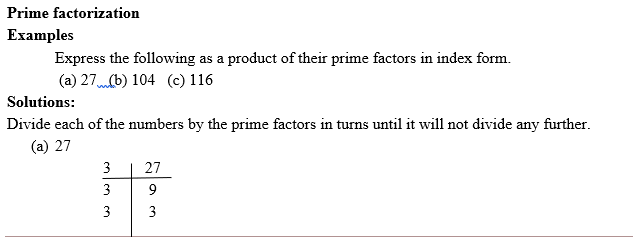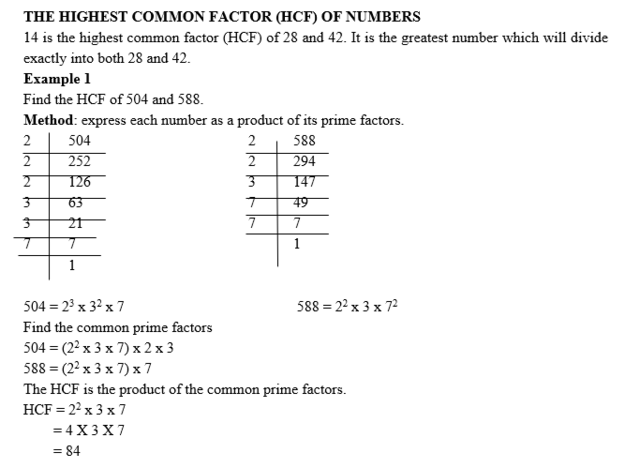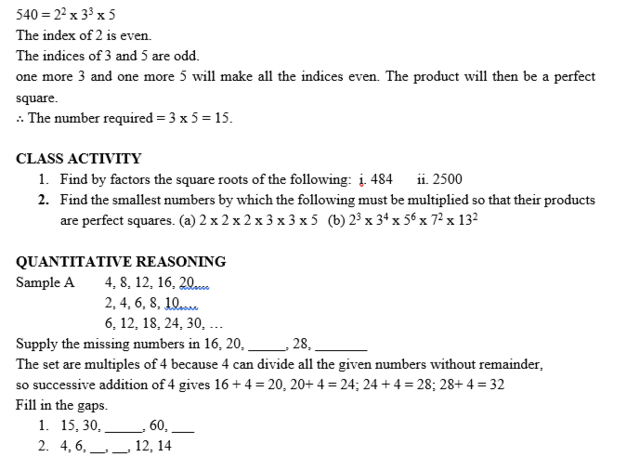Prime factors of numbers.
Prime factors of a number are the factors of that number which are not divisible by any other number except that number and 1. For example, the prime factors of 30 are 2,3 and 5 because out of all the factors of 30 (1,2,3,5,6,10,15 and 30), it is only 2,3 and 5 that are not divisible by any other number except themselves and 1.
Examples:
Write the factors of the following numbers and state the prime factors, hence express each number as a product of its prime factors.
Solutions:
Factors of 22 are 1, 2, 11, 22
The prime factors of 22 are 2 and 11
Product of its prime factors of 22 = 2 x11
The prime factors of 50 are 2 and 5
Product of its prime factors of 50 = 2 x 5 x 5 = 2 x 52
The prime factors of 63 are 3 and 7
Product of its prime factors of 63 = 3 x 3 x 7 = 32 x 7
The prime factors of 42 are 2, 3 and 7
Product of its prime factors of 42 = 2 x 3 x 7


THE LEAST COMMON MULTIPLES (LCM) OF NUMBERS
The LCM of two or more quantities is the smallest common multiple they have.
For example:
The multiple of 2: 2, 4, 6, 8, 10, 12…
The multiple of 3: 3, 6, 9, 12, 15…
Notice that 6 and 12 are the common multiples of 2 & 3
But the Least Common multiple (LCM) is 6.
Example: Find the LCM of 22, 30 and 40
Method: Express each number as a product of its prime factors.
22 = 2 x 11
30 = 2 x 3 x 5
40 = 2 x 2 x 2 x5 = 23 x 5
The prime factors of 22, 30 and 40 are 2, 3, 5, and 11.
The highest power of each prime factor must be in the LCM.
These are 23, 3, 5 and 11
Thus, LCM = 23 X 3 X 5 X 11
= 8 X 3 X 5 X 11
= 1320






PRACTICE QUESTIONS
ASSIGNMENTS
Read our disclaimer.
AD: Take Free online baptism course: Preachi.com 